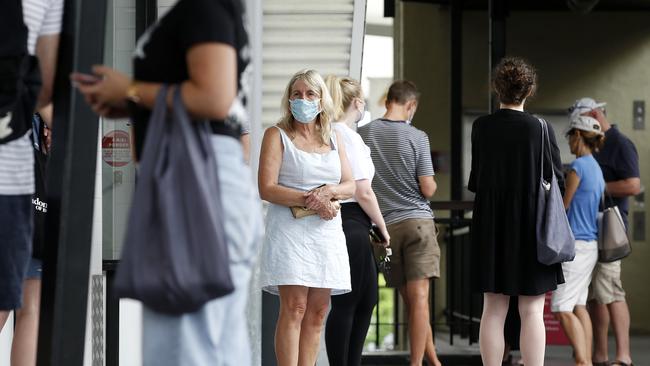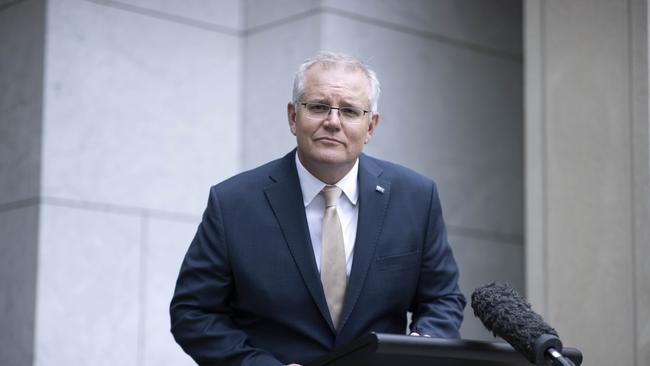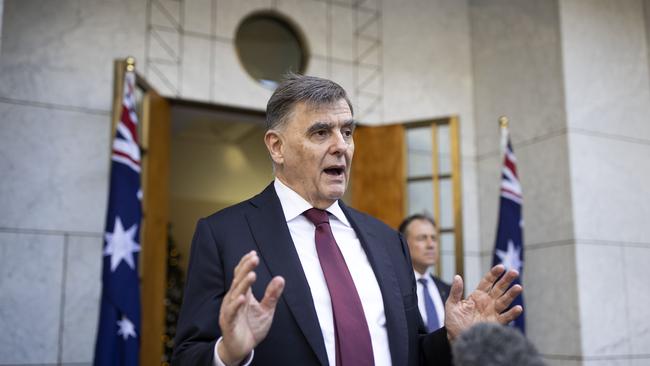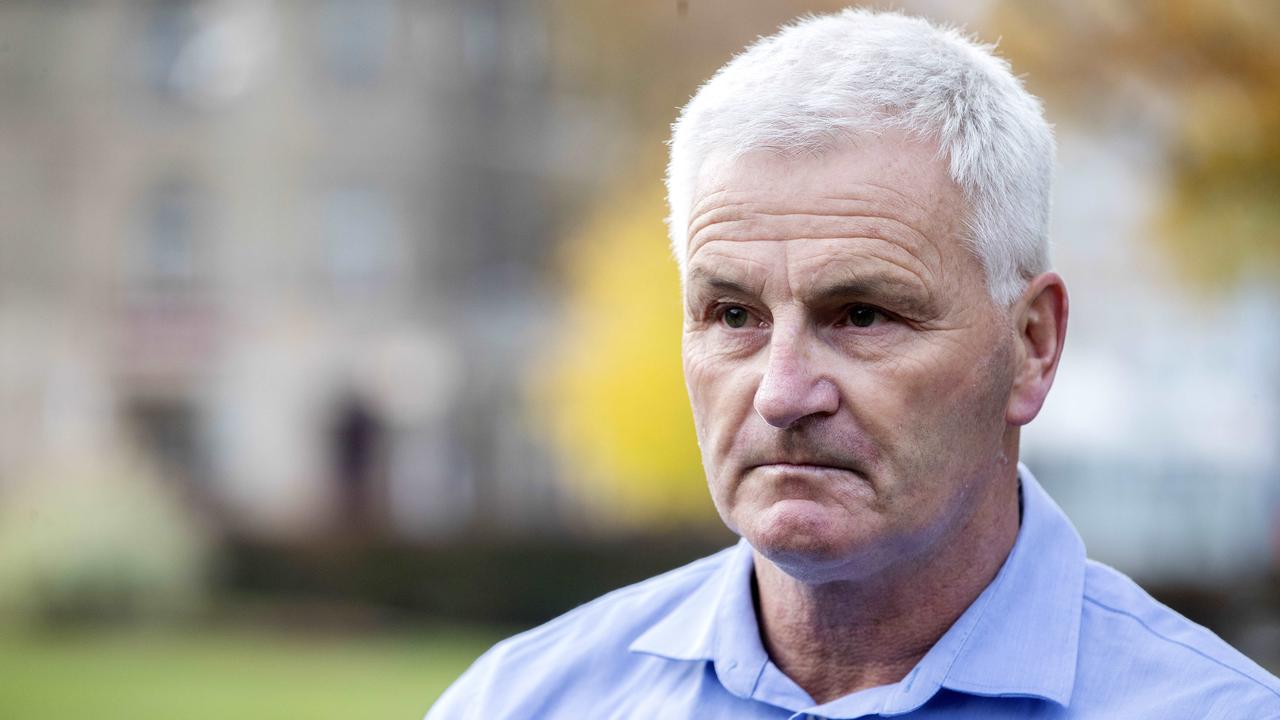Greater Brisbane declared a high risk area, vaccine rollout fast-tracked to February
Tasmania has declared Greater Brisbane a high risk area following the Queensland Government’s announcement of a three day lockdown of residents. LATEST >>
Coronavirus
Don't miss out on the headlines from Coronavirus. Followed categories will be added to My News.
- Millions of dollars in sought-after travel vouchers unclaimed
- UK strain in Aussie hotel worker, COVID vax rollout in February
TASMANIA has declared Greater Brisbane a high risk area following the Queensland Government’s announcement of a three day lockdown of residents.
This follows a city hotel quarantine worker being diagnosed with a more infectious ‘new variant’ strain of the virus that causes COVID-19.
Greater Brisbane covers five council areas – Brisbane, Moreton Bay, Redlands, Ipswich and Logan.

Residents of Greater Brisbane are required to stay at home and must not travel.
Any traveller arriving in Tasmania from today who has been in the Greater Brisbane area since 2 January will need to immediately quarantine for up to 14 days.
Those without a suitable premises they will be placed into a government quarantine hotel.
Public Health advises if Tasmania and have been in the Greater Brisbane area since 2 January, please check the list of risk locations.
If you have been at any of these places at the dates and times, please self-isolate and contact the Tasmanian Public Health Hotline on 1800 671 738 to arrange a test.
An SMS will be sent today to all persons in Tasmania who were recently in Queensland with this advice.
VACCINE ROLLOUT FAST-TRACKED TO FEBRUARY
Claire Bickers
COVID-19 vaccines will be rolled-out across Australia from February for the highest priority groups including frontline workers and aged care residents and staff.
Australians aged 70 and older will be in the second group to get the vaccine, according to a plan unveiled by Scott Morrison yesterday.
The Prime Minister said it had taken “considerable effort”, including from vaccine suppliers, to fast-track the rollout to mid-to-late February, rather than March, which was the timeline earlier this week.
“It is moving considerably faster than normal vaccination approval processes would occur in Australia, but without skipping a step, without cutting a corner, ensuring that everything that needs to be ticked is ticked along the way,” Mr Morrison said.

Critical and high-risk workers such as defence, police, fire, emergency services and meat processing workers will also be in the second group to get the vaccine, along with Indigenous Australians aged 55 and older and younger adults with serious medical conditions.
The third group vaccinated will be Australians in their 60s and 50s, Indigenous Australians aged 18 to 54 and more critical and high risk workers.
The remaining adult population will be vaccinated later in the year.
Children may not get the vaccination.
They are listed as the final group to receive the jabs but only “if recommended”, as the vaccinations have yet to be tested on people under age 18.
The government has repeatedly promised the vaccines will be voluntary but Mr Morrison on Thursday acknowledged they may be made mandatory for some workers.
“That is an important discussion for the public health and safety that needs to be had with states and territories,” Mr Morrison said.
He warned vaccination was “not a silver bullet” and COVID-Safe practices would continue to be needed throughout 2021.
About 80,000 jabs are expected to be delivered each week, with a target of 4 million doses to be rolled out by the end of March.
Vaccination hubs will be established at hospitals to deliver the shots initially, and then up to 1000 vaccine sites will be launched at GP surgeries and potentially pharmacies later this year.
Australia will get the Pfizer vaccine first, followed by the AstraZeneca vaccines.

Health Department secretary Brendan Murphy said the vaccines would be free, including zero costs for GP visits.
“We’re working with the medical bodies about how that will be achieved but we do not want cost to be any barrier whatsoever to access to the vaccine,” he said.
The amount of vaccines delivered to each state would depend on the number of people in the priority groups in each phase of the rollout.
Mr Morrison and state premiers will also hold a special National Cabinet today to discuss new measures to prevent the highly infectious UK Covid-19 strain from causing outbreaks in Australia.
Pre-flight testing for all international arrivals is expected to be introduced.
Premier Peter Gutwein did not comment on the proposed measures yesterday, but said: “The health and safety of Tasmanians remains our number one priority as we continue to respond to the COVID-19 pandemic.”
Labor leader Anthony Albanese welcomed the vaccine rollout being brought forward to February.
“It is a good thing that the Government is now doing what it said was impossible just days ago,” he said.


